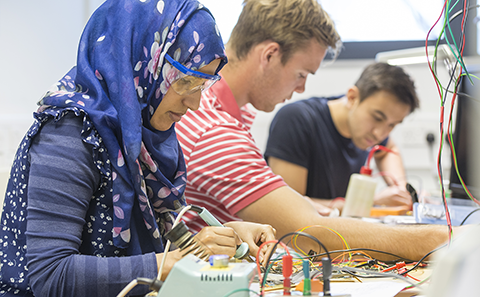
Try before you apply
If you love maths, technology or science, try our week-long summer school in electronics and computer science.

If you love maths, technology or science, try our week-long summer school in electronics and computer science.